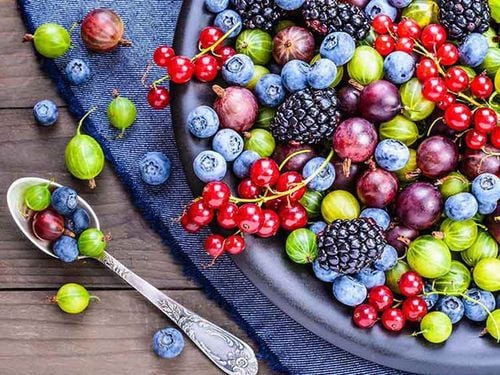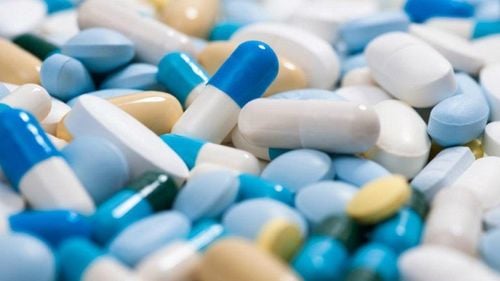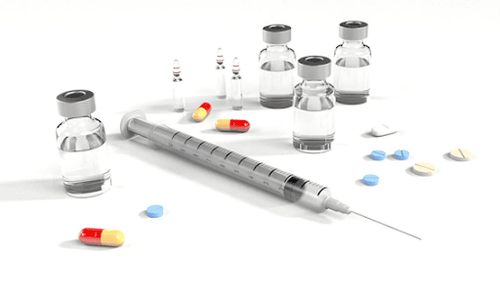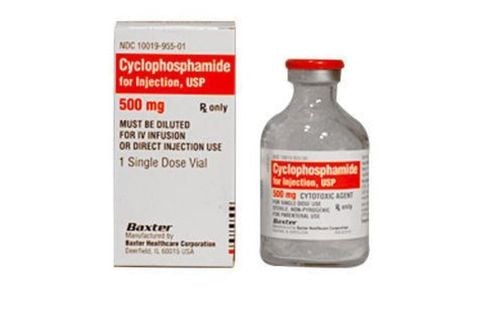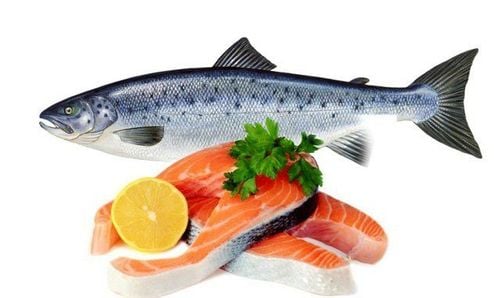This is an automatically translated article.
In fact, nutrition has a great influence on the risk of cancer in humans. Likewise, having a healthy diet is important during cancer treatment and recovery. Certain foods, including fruit, contain health-promoting compounds that can slow tumor growth and reduce certain side effects of treatment, making it easier for the body to recover. .
1. How to choose fruit for people with cancer
During cancer treatment and recovery, it is very important to choose the right foods and complete nutrition. Cancer treatments such as chemotherapy and radiation can cause many side effects, which can be made worse or significantly improved by what a patient eats and drinks every day.
Some side effects of chemotherapy and radiation therapy:
Fatigue Anemia Nausea Change in appetite Diarrhea Constipation Painful Swallowing Dry mouth Mouth sores Poor concentration Mood changes Supplementing with nutritious foods, including mussels, providing the body with an adequate amount of vitamins, minerals and antioxidants during cancer treatment and recovery.
Depending on the body's manifestations, choosing the right fruit is very important. For example, using fruit purees or smoothies is an effective way for people who have difficulty swallowing and digesting.
On the contrary, eating fresh fruits high in fiber is good for people who have trouble with constipation. Some fruits also need to be considered before using, such as oranges, which can make mouth sores worse.

Người bệnh sau xạ trị có thể xuất hiện tình trạng mệt mỏi trong cuộc sống
2. List of fruits
2.1 Blueberries Blueberries are a fruit rich in fiber, vitamin C and manganese. They are also a source of antioxidants that have been shown to prevent cancer. Blueberries may help improve memory loss and impaired concentration in some people after cancer treatment.
One small study found that drinking blueberry juice daily for 12 weeks improved memory and learning ability in older adults. Similarly, a recent review of 11 studies reported that blueberry consumption can improve several aspects of brain function in both children and adults.
Although these studies did not include people undergoing cancer treatment or recovery, the researchers believe they are likely applicable to a large population.
2.2 Orange Orange is a popular citrus fruit, favored for its sweetness, vibrant color, and outstanding nutritional profile. Just one medium orange can meet or exceed a person's daily vitamin C needs, while providing other important nutrients such as thiamine, folate and potassium.
Vitamin C plays a key role in immunity, thereby strengthening the body's immune system during and after cancer treatment. Research shows that vitamin C can reduce the growth and spread of cancer cells. Besides, acts as a therapy against and prevention of some types of cancer.
Vitamin C from oranges can also enhance the absorption of iron from food in the body. This helps reduce the incidence of anemia, a common side effect of chemotherapy.
2.3 Bananas Bananas are not only an easily tolerated fruit for people with dysphagia, but they are also a good source of many important nutrients, including vitamin B6, manganese and vitamin C. In addition, bananas contain one. A fiber called pectin, which may be especially beneficial for people with diarrhea caused by cancer treatment. Due to their potassium-rich properties, bananas have the ability to help replenish electrolytes lost due to diarrhea or vomiting.
Furthermore, test-tube studies have observed that the pectin in bananas can help fight the growth and development of cancer cells. However, Medicine still needs more studies to prove the effectiveness of this on the human body.
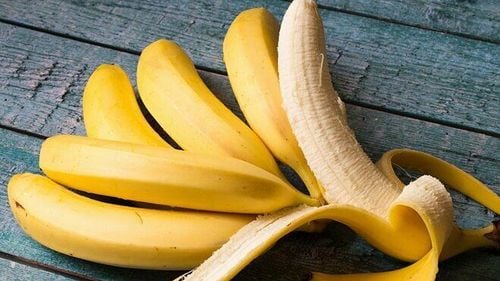
Chuối cung cấp nhiều chất dinh dưỡng có lợi cho người bệnh
2.4 Grapefruit Grapefruit is a nutritious fruit packed with antioxidants, vitamins and minerals. In addition to providing high amounts of vitamin C, vitamin A and potassium, this fruit is also rich in beneficial compounds like lycopene. This compound is a carotene with potent anti-cancer properties. Some studies show it can reduce the negative side effects of cancer treatments, like chemotherapy and radiation. One study in 24 adults found that drinking 500ml of juice from citrus fruits, including grapefruit, increased blood flow to the brain, which may help minimize negative brain effects during conditioning. treat. However, when absorbed, grapefruit affects the effects of some drugs, so users should consult a doctor before including grapefruit in their daily diet.
2.5 Apple Apples are not only one of the most popular fruits in the world, but also one of the most nutritious foods in the fruit family. Each serving is packed with nutrients that are beneficial in helping the body recover from cancer, such as fiber, vitamin C and potassium.
The fiber content in apples can promote and maintain a healthy and regular digestive system. Potassium affects fluid balance in the body and helps prevent excess water retention, a common side effect of some types of chemotherapy. Finally, vitamin C in apples can strengthen the body's immune system, helping to prevent the growth of cancer cells.
2.4 Grapefruit Grapefruit is a nutritious fruit packed with antioxidants, vitamins and minerals. In addition to providing high amounts of vitamin C, vitamin A and potassium, this fruit is also rich in beneficial compounds like lycopene. This compound is a carotene with potent anti-cancer properties. Some studies show it can reduce the negative side effects of cancer treatments, like chemotherapy and radiation. One study in 24 adults found that drinking 500ml of juice from citrus fruits, including grapefruit, increased blood flow to the brain, which may help minimize negative brain effects during conditioning. treat. However, when absorbed, grapefruit affects the effects of some drugs, so users should consult a doctor before including grapefruit in their daily diet.
2.5 Apple Apples are not only one of the most popular fruits in the world, but also one of the most nutritious foods in the fruit family. Each serving is packed with nutrients that are beneficial in helping the body recover from cancer, such as fiber, vitamin C and potassium.
The fiber content in apples can promote and maintain a healthy and regular digestive system. Potassium affects fluid balance in the body and helps prevent excess water retention, a common side effect of some types of chemotherapy. Finally, vitamin C in apples can strengthen the body's immune system, helping to prevent the growth of cancer cells.
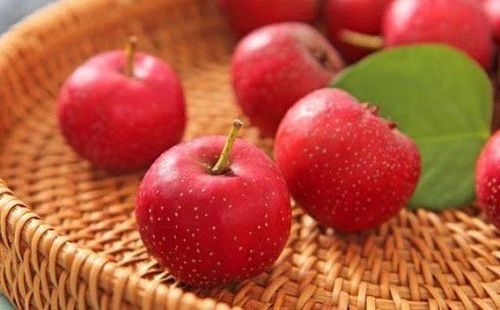
Táo chứa lượng chất xơ giúp người dùng cải thiện hệ tiêu hóa và ngăn ngừa tế bào ung thư phát triển
2.6 Lemon Known for its sour taste and distinctive aroma, lemons provide a diverse dose of vitamins, minerals and antioxidants in each serving. They are especially rich in vitamin C, and also contain potassium, iron and vitamin B6. Test-tube studies have shown the ability to prevent the growth of cancer cells.
Animal studies also show that certain compounds in lemons, including limonene, can help boost mood, fight stress, depression, and reduce anxiety. Although medical research still needs more actual studies on the human body to prove this effect, using lemon or drinking lemon juice daily helps to supplement and balance a nutritious diet. .
2.7 Pomegranate is a delicious and nutrient-rich fruit with health benefits. Like other fruits, pomegranates are rich in vitamin C, fiber, vitamin K, folate, and potassium. In addition, some studies have shown that eating pomegranates can improve memory and concentration in people affected by chemotherapy.
A study in 28 people showed that drinking 237ml of pomegranate juice daily for 4 weeks regularly boosted brain activity and improved memory.
2.8 Mulberry Mulberry is a colorful fruit, in the same family as figs. Mulberry has been used in traditional remedies to fight cancer. A number of recent studies have begun to confirm the effects of this fruit.
Mulberry is one of the few fruits with both vitamin C and iron, helping to improve anemia after cancer treatment. They are also high in a plant fiber called lignin, which has been shown to boost immune system function and kill cancer cells in test-tube studies.
2.9 Pears are a flavorful fruit that is easy to add to your daily diet. They provide plenty of fiber, copper, vitamin C and vitamin K in each serving. The copper content in pears plays a central role in improving immune function and reducing the body's susceptibility to infection. A study of 478,000 people found a link between pear consumption and a reduced risk of lung cancer.
2.10 Strawberries Due to their distinctive delicious and rich flavor, strawberries are a favorite of many people. They are rich in vitamin C, folate, manganese, potassium and a number of other antioxidant compounds.
In addition to the outstanding nutritional value table, strawberries are also known for their ability to improve the condition of cancer cells. In several studies in hamsters with oral cancer, the addition of frozen strawberries to the diet reduced the rate of tumor formation. Another study in mice showed that strawberry extract helped kill breast cancer cells.
Although, more quality studies are needed to confirm the real effects of strawberries, but it is undeniable that this is a nutritious and easy-to-eat fruit for many people.
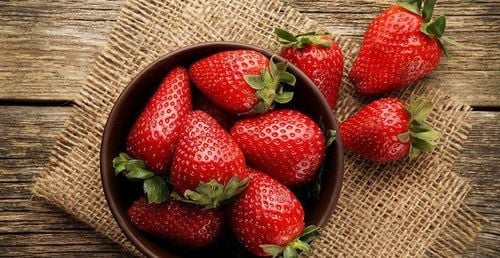
Dâu tây giàu vitamin C cùng với một số vi chất khác có lợi cho sức khỏe của người bị ung thư
2.11 Cherries Cherries are in the same family as plums, peaches, and apricots. In each serving, this fruit provides a full spectrum of nutrients like vitamin C, potassium and copper. The fruits of this genus are also a good source of antioxidants, including beta carotene, lutein and zeaxanthin, all of which have health benefits. Many studies have found that the antioxidants present in cherries can help slow down the growth of cancer cells.
A test-tube study has shown that cherry extract can kill and stop the spread of breast cancer cells. Another animal study showed similar results, showing that certain compounds found in cherries reduced the growth of colon cancer cells in mice.
However, these studies analyzed the effects of cherry extract in large amounts. Additional studies are needed to evaluate the effects on the human body when cherries are consumed in reasonable portions.
2.12 Raspberries The raspberry is a fruit notable for its succulent, characteristic purple color and sweet but slightly bitter taste. This fruit has large reserves of vitamin C, manganese and vitamin K. Raspberries also contain a number of antioxidants, including ellagic acid, gallic acid, and chlorogenic acid.
According to some studies, eating raspberries can help the body fight DNA damage, neutralize harmful compounds called free radicals, thereby slowing the growth and spread of cells. cancer cells. Test-tube and animal studies show that raspberries have the ability to boost brain health and improve memory, and prevent some of the side effects of chemotherapy.
Customers can directly go to Vinmec Health system nationwide to visit or contact the hotline here for support.
Healthline.com reference article




